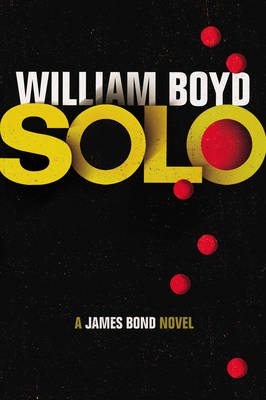Reviewed by viking2917 on
I could have gone for Ian Fleming of course — that would be traditional. Thunderball would have been on target. That’s the book where SPECTRE first makes their appearance. And it’s always interesting to contrast Fleming’s Bond with Cinema’s Bond. Fleming famously wanted Bond to not be a classic hero figure. In The New Yorker, he was quoted thus:
”When I wrote the first one in 1953, I wanted Bond to be an extremely dull, uninteresting man to whom things happened; I wanted him to be a blunt instrument … when I was casting around for a name for my protagonist I thought by God, [James Bond] is the dullest name I ever heard.”
Of course Judi Densch went on to call him a “blunt instrument”, but he’s hardly dull and uninteresting in the movies.
So instead, as part of my 3 month Scribd subscription experiment, I decided to go for William Boyd’s SOLO, a post-Fleming addition to the canon, which was fortunately in Scribd’s catalog. I was curious to see what a “real novelist” would do with Bond.
Echoing Skyfall (SOLO was released after Skyfall), Bond is aging (45), starting to get tired, but just as ceaselessly on the prowl for women, spies and conspiracies. He’s off to West Africa where fictional Zanzarim (a standin for Nigeria) is in the throes of a violent civil war. He’s met by his local contact, Blessing Ogilvy Grant, who for all the world seems like Skyfall’s Moneypenny, as played by Naomie Harris. Bond is undercover as a French journalist and is soon in the thick of it.
Boyd (re) captures Bond well. Relentlessly fussy about food and drink, dismissive of American coffee, a voluminous consumer of alcohol, and constantly aware of the women swirling around him. Boyd does give Bond some self-control — especially regarding the women. Reliable characters make their appearance — one armed Felix Leiter, a bit the worse for wear than he appears in Casino Royale, but still in the mix.
The plot is relatively standard Bond stuff, but Boyd’s time in Nigeria allows him to paint an accurate, if gruesome, picture of the world of African civil wars, tribe on tribe, with mercenaries from other countries in the mix (and often running the show). The villains are wonderful. I didn’t find the novel to be anywhere near as insightful as Any Human Heart, but then, it’s a Bond novel and it went down easily, like a very dry martini. And the Bond of SOLO is a bit nicer than Fleming’s Bond, who had no trouble being cruel and on the misogynistic side. Boyd’s Bond saves starving African children.
If you’ve not read Fleming, I suggest starting there — Solo is a great way to get your Bond fix if you’ve been through Fleming.[b:Thunderball|177194|Thunderball (James Bond, #9)|Ian Fleming|https://d.gr-assets.com/books/1431840214s/177194.jpg|2933393]
Reading updates
- Started reading
- Finished reading
- 7 November, 2015: Reviewed
